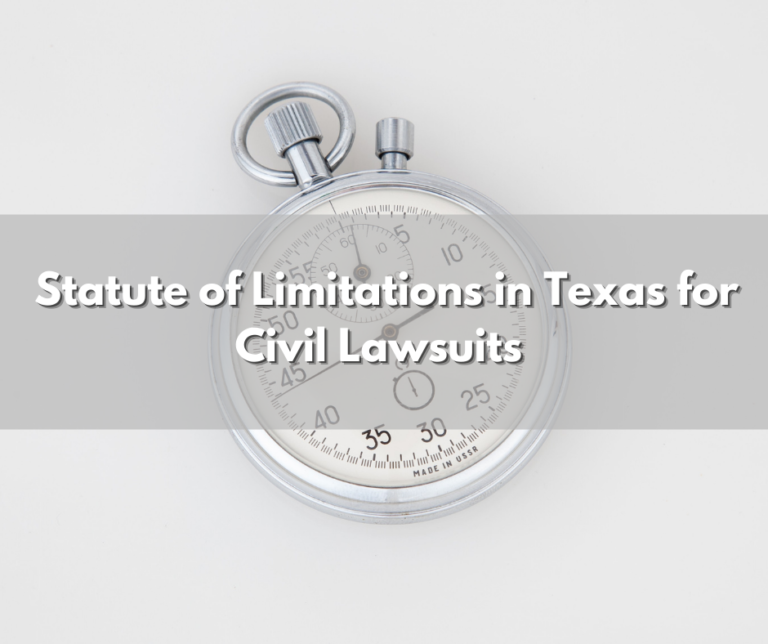Houston Personal Injury Accident Lawyer
All legal claims face restrictions on the amount of time you can file a lawsuit after you have suffered some type of harm or loss. Here’s what you need to know about statute of limitations in Texas.
What Is A Statute Of Limitation?
A statute of limitation is a law that prevents someone from beginning a lawsuit after a certain period of time has passed. For example, if you were involved in an auto accident four years ago and decided to file a lawsuit today for your injuries sustained in that accident, you’d be precluded from doing so. In that example, the statute of limitations in Texas for a personal injury claim is two years. Since it was after the two-year statute of limitation, you’d lose your right to file a lawsuit. This is true even if you had a valid claim.
Why Do Statutes Of Limitations Exist?
A statute of limitation is imposed to make people pursue their claim in a timely manner while evidence is still available. Eye-witnesses can pass away and documents can be destroyed or lost if too much time passes. According to the U.S. Supreme Court, “Statutes of limitations … are designed to promote justice by preventing surprises through the revival of claims that have been allowed to slumber until evidence has been lost, memories have faded, and witnesses have disappeared.”
What Is The Statute Of Limitation In Texas For Civil Lawsuits?
Deadlines vary depending on what type of case you want to file, but in general, the following are some of statute of limitations enforced in Texas:
- Personal injury (2 years)
- Wrongful death (2 years)
- Assault and battery (2 years)
- Product Liability (2 to 15 years)
- Personal Property damages (2 years)
- Libel/Slander (1 year)
- Fraud (4 years)
- Trespass (2 years)
- Legal& Professional Malpractice (2 years)
- Contracts (4 years)
Are There Any Legal Exceptions To The Statute Of Limitations In Texas?
Some legal exceptions exist, but only in limited circumstances:
Minors
Certain exceptions apply to children under the age of 18 because until they reach the age of majority, they lack the legal capacity to file suit. In general, the statute of limitations is delayed until the child turns 18.
Members Of The Armed Services
Exceptions to the statute of limitations is provided for active-duty military personnel. Texas law allows an exception when you are stationed overseas in active duty.
The Discovery Rule In Texas
In some cases, a person may not discover an injury for a period of time exceeding the applicable statute of limitations. For example, a medical issue relating to a misdiagnosis may only appear when your health begins to deteriorate. Requiring you to file a lawsuit when the issue was not apparent simply would be unfair. Texas law may allow you to file a lawsuit within a reasonable time once the injury or loss is discovered. However, the discovery rule is fact dependent and may not apply in all circumstances.
Contact Hernandez Sunosky, LLP For A Free Consultation.
If you have suffered and injury or loss, and are uncertain of the time limitation to pursue your claim, contact Hernandez Sunosky, LLP or a free, no obligation consultation with our top rated Houston personal injury lawyers. We will evaluate your claim and help you understand your legal options.
We work only on a contingency fee basis, which means there are no upfront fees for our services. You only have to pay us if we recover compensation for your case.

